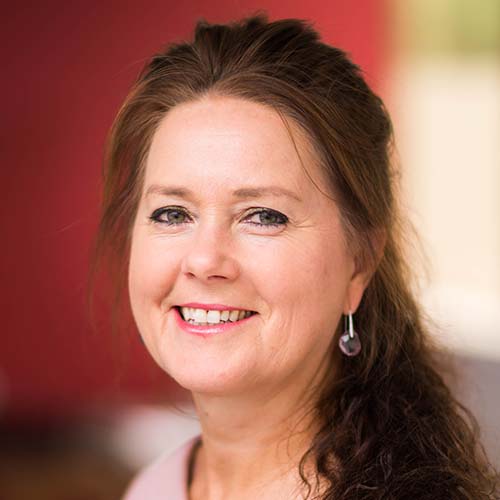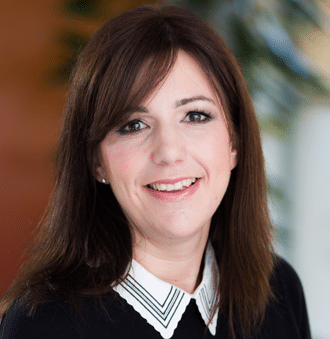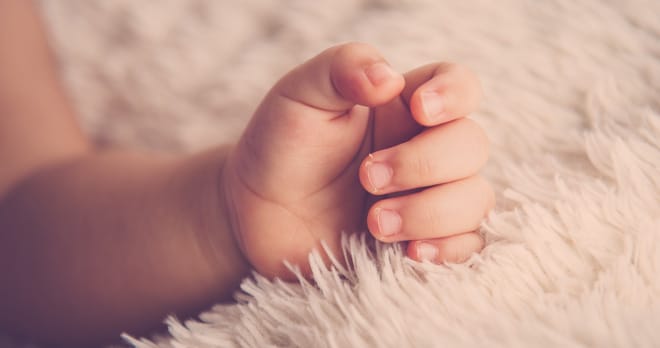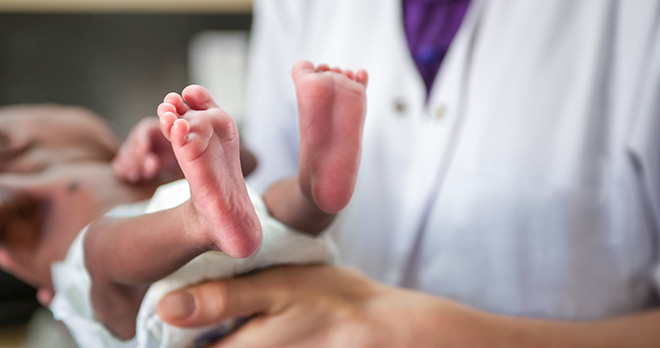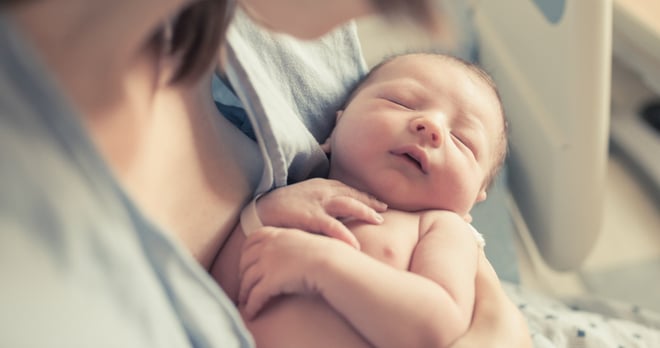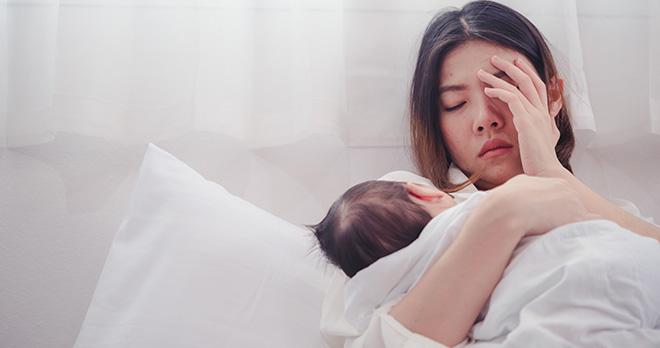Support available for children with cerebral palsy
When your child is diagnosed with cerebral palsy, your NHS health team will assess your child and provide the necessary health and therapeutic support to make living with cerebral palsy as manageable as possible. This might include appointments with a paediatrician, physiotherapy, occupational therapy, speech and language therapy and any necessary medical equipment to help with mobility and communication.
However, you may be able to access more support through your local authority, charities and the Government.
With the help of your occupational therapist, you may wish to explore the wide range of assistive technologies, mobility and communication aids designed to make living easier.
Below we provide an overview of what additional care and assistance is available:
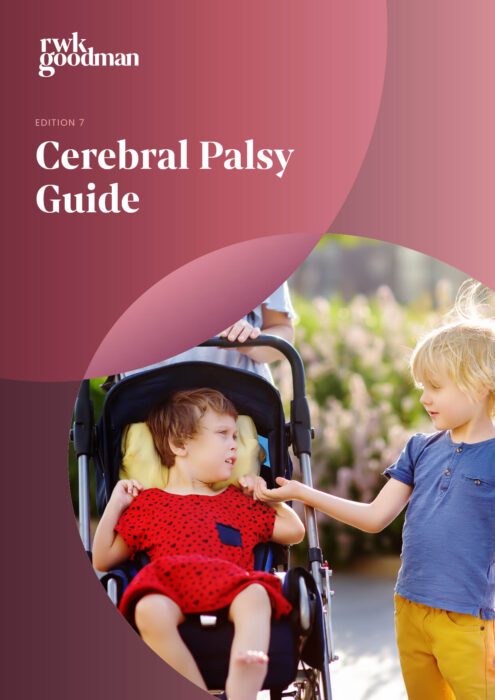
Download our guide to cerebral palsy
Find out all you need to know about the condition, treatments, support available and more in our guide.
Our birth injury experts have collated a range of information for families affected by cerebral palsy in this comprehensive guide.
Support available
It is the responsibility of your local authority (social services or children’s services) to assess whether you require any support with non-medical care.
This is done through a ‘needs assessment’ which takes into account the needs of your child and the rest of your family. If you are eligible to receive non-medical support, it could include:
- Short break (respite) services to relieve your responsibility for caring for a child with cerebral palsy for short periods
- Access to free day care / play schemes
- Care and assistance in your home
- Some mobility, home adaptations and disability equipment
- Financial help, such as money to help you travel to and from hospital or to therapies.
If your child is eligible to receive these types of support services, you can request direct payments from your local authority. You can then arrange the services yourself.
The needs assessments will also be used to determine whether your child has any special educational needs. If your child is assessed as having complex additional needs, then your NHS care team – working together with the local authority – will agree an Education, Health and Care Plan (EHCP) with you and your child that is in place until they’re 25.
-
Disability Living Allowance for children
If you have a child with cerebral palsy who is under the age of 16, you may be eligible to claim a Disability Living Allowance (DLA) to help with the extra costs of looking after them. This benefit is tax-free and not dependent on income. You can use the DLA claim form to check your eligibility and make an application.
The allowance has a care component and a mobility component. You cannot claim the mobility component for a child under three years old, but there is no age restriction on the care component. Please note that it is not usual to claim for a child under three months old.
-
Personal Independence Payment for adults aged 16-64
If you or your child is over 16, you can apply for a Personal Independence Payment (PIP), a tax-free benefit known formerly as Disability Living Allowance (DLA) for adults.
There is more information about the rates of DLA for children, PIP for adults, eligibility criteria and how to apply, on the government website.
-
Carer’s Allowance and Carer’s Credit
As a carer of a child or adult with cerebral palsy, you may also be entitled to direct financial support from the Government, such as a Carer’s Allowance, Carer’s Credit, certain employment rights and respite care/short breaks. You can find out more about your eligibility from Carers UK on 0808 808 7777 or on the government website.
How to find out more
You can find out more about the benefits and credits available to you at the Department for Work and Pensions website and from the charities Contact a Family and Disability Rights UK. You can also call your local Citizens Advice Bureau for help and advice.
Your local authority may offer a Disabled Facilities Grant, enabling you to make adaptations to your property to help your child’s mobility and to make daily living and access easier. If the application is made for the benefit of a child or young person under the age of 19 then it is not means tested (i.e. your income does not affect your eligibility). Contact your local authority for details.
Depending on the severity of your child’s cerebral palsy, you may need to make adaptions to your home.
Carefully planned adaptations can vastly improve the quality of life for you and your child, resulting in improved access and independence around the home, especially for those using walking frames, wheelchairs and other mobility aids.
Your occupational therapist will be able to advise on the most appropriate adaptations, but they could include:
- Widening doors and making access easier
- Fitting ramps or creating dropped curbs
- Fitting a stair lift
- Creating safe spaces, free from hazards
- Creating a wet room or walk-in shower to make bathing easier
- Adapting lighting for those with visual impairments
- Making outdoor space safe (gardens, balconies etc.)
- Improving heating systems
- Converting a downstairs room to an accessible bedroom with bathroom
- Lowering facilities so that a person in a wheelchair can reach them.
These adaptations may or may not form part of your support package from the local authority after a needs assessment.
You can also apply for various grants and support from your local authority, such as the Disabled Facilities Grant (DFG).
Please contact your health visitor/social worker or local authority for information on the DFG and other housing grants, or visit Disability Rights UK. Charities may also be able to help low-income families.
Children with cerebral palsy who struggle to speak – or who cannot speak – will benefit from learning to use augmentative and alternative communication (AAC).
This is a term used to describe a range of communication methods that aid speech, from simple signing to highly complex technology.
- Unaided AACs (low tech) include learned body gestures, facial expressions, pointing, sounds and signing to communicate.
- Aided low-tech AACs include pen and paper, word and alphabet boards, books and charts with symbols, pictures or photos.
- Aided high-tech AACs include computers, such as laptops, tablets and mobiles, with software designed to support communication, or specialised devices that generate speech called voice output communication aids (VOCAs).
If your child has difficulty pointing or pressing buttons, solutions include keyguards, pointers and eye-gaze controllers.
Children who cannot speak may find communication passports particularly valuable. The passports introduce themselves to others and provide information on the best way to communicate, such as how they say yes or no. They are particularly useful in nursery and school settings but need to be updated regularly.
Your child’s speech and language therapist can advise on the most appropriate communication aid for your child or young person as they grow and develop.
Your NHS team may lend the necessary equipment, or your local authority may include the necessary aids in its support package (if your child is eligible). Otherwise grants for communication aids may be available through charities.
Mobility aids for people with cerebral palsy range from simple orthoses and walking frames to specialist powered wheelchairs. Finding the most appropriate and comfortable mobility aids for your child or young person is vital for their growing independence, self-esteem and quality of life.
The right mobility aids (also called assistive devices or assistive technologies) will depend on your child’s age, the muscle groups/limbs affected and the severity of your child’s condition. They could include:
-
Orthoses
Tailored braces (hard or soft) that support and strengthen affected areas, such as feet, ankles, knees, legs, hips and back, and which are prescribed and fitted by your child’s health team such as an orthopaedic surgeon, physiotherapist and orthotist.
-
Walking sticks
Tailored or off-the-shelf walking sticks can be adjusted to height and some can be folded. They are easy to use indoors or out and can help with standing, walking and weight bearing. Some have tripod bases to provide more support, and they are available in a variety of materials and at a range of prices.
-
Crutches
Forearm crutches can help those who need help to balance while walking.
-
Standing aids
Weight-bearing standers enable a child or young person with cerebral palsy to stand for short or long periods of time. They are beneficial if sitting is uncomfortable or if they need additional support when standing. There are different types available to suit your child’s needs and condition.
Using a stander has additional benefits, such as stretching the leg and hip muscles, strengthening muscles, improving bowel and bladder functions and enabling the user to join in with others who are standing.
-
Walkers
A variety of four-post walkers are available to help those who struggle to walk or bear their own weight because of problems with balance and posture. They also help to build muscle and bone strength.
Two-wheeled walkers (with four posts) enable slower speeds and more control for those who struggle to maintain balance.
Some walkers include built-in seats to enable the user to go from sitting to standing, and others include chest supports to help control the trunk.
For those who cannot support their full body weight, suspension walkers include a harness attached to an overhead frame. A motorised lift adjusts what weight is borne.
-
Wheelchairs
If you or your child cannot walk, or cannot walk for sustained periods, then a wheelchair is an ideal mobility aid. Wheelchairs come in a variety of designs and prices, but your first choice is between a powered or manual wheelchair.
Manual wheelchairs are cheaper than powered wheelchairs, but require the user to have some strength in their upper body and arms. Some will recline for comfort, or fold down for easy storage.
Powered wheelchairs are easy to use and come with several different features depending on your needs and budget. They suit those with little upper body control or strength. They are heavier than manual wheelchairs but enable you to get about quickly and easily.
Before buying a wheelchair it’s important to consider how, where and when it will be used and how suitable it is in all of these circumstances. You should also consider its weight, flexibility, functions, cost and comfort.
See also Wheelchair provision and wheelchair skills training below.
-
Hoists/Transfers
Hoists or lifts can come as slings, seats and platforms to help people with cerebral palsy to move around spaces where it’s difficult to operate wheelchairs or walkers. They can be manual or powered and are particularly helpful for carers wishing to protect their backs when lifting and transferring those they care for.
-
Scooters
Scooters are an alternative to powered wheelchairs but can be difficult to transport in other vehicles, unless they are specifically designed to be portable. They come with three or four wheels, armrests, swivel seats and storage, and can be driven forward or in reverse.
The size of the three-wheeled scooter means it can be used inside and in small spaces but offers less stability than a four-wheeled scooter.
The NHS has a wheelchair service that your physiotherapist can tell you about. The service will assess and determine what type of chair and mobility equipment you or your child is entitled to on the NHS.
The charity Whizz-Kidz provides young people with mobility aids that may not be available from the NHS. Whizz Kidz and Go Kids Go! also provide free wheelchair skills training and courses.
You may be eligible for the Motability Scheme to buy a motorised wheelchair if your child gets the high-rate mobility component of disability living allowance (see above).
The Motability Scheme enables disabled people to use their government-funded mobility allowance to lease a new car, scooter or powered wheelchair.
If your child is over two and has difficulty walking, you may also wish to apply for disabled parking (also called Blue Badge). If you are a disabled driver, you may be eligible for road tax exemption and disabled parking.
You can check your eligibility for disabled parking and road tax exemption at the Government’s website.
Your occupational therapist will be able to advise on the assistive technologies and aids available to help with daily living, other than mobility and communication aids. This might include:
- Aids to assist with eating and drinking, such as cutlery and cups with special handles
- Special mattress and aids to help sleep
- Special bathroom equipment and bathing aids
- Assistive technology designed to help with housework, such as aids to help you reach for, turn and move items and mounted switches to help you use electronic devices
- Specialist chairs, tables and desks.
Education and work
If your child is assessed by your local authority and NHS care team as having a learning difficulty or learning disability (i.e. they have a significantly greater difficulty in learning than the majority of others of the same age and/or their physical disability hinders them from making use of facilities provided for other children the same age in mainstream education) then they will be defined as having special education needs and disabilities (SEND).
Under a new law, Children with SEND are entitled to a coordinated assessment by their local authority and NHS team to ensure that the services they require are secured up until the age of 25. Following the assessment, an outcomes-focused tailored Education, Health and Care Plan (EHCP) is agreed for your child.
Independent supporters are available to help those having an EHC assessment or moving from their old statement of special educational needs to an EHC plan. You can find out more about independent supporters from your local authority.
If your local authority makes a decision about the educational support you get and you don’t agree with it, you can appeal the decision.
Even if you/your child does not qualify for special educational needs, your local authority and NHS team are still responsible for ensuring coordinated support in all aspects of education, health and care.
All settings (nurseries, childminders, playgroups) registered with Ofsted follow the early years foundation stage (EYFS) framework, which makes sure that there is support in place for children with SEND. All settings are required by law to meet the Equality Act, and must make ‘reasonable adjustments’ to meet the needs of your child. Every setting will have a special educational needs coordinator (SENCO) and equality coordinators to support your child’s additional needs.
Depending on the level of support your child/young person needs, they can attend a:
Mainstream school
Special school for children with severe and complex needs
Special school for children with moderate needs
Residential school.
All mainstream schools and colleges will have special educational needs coordinators (SENCOS) and equality coordinators who can help to secure the services and additional help your child requires, even if they are not assessed as having special educational needs.
No school can refuse to admit a child because they feel unable to meet their special educational needs and disabilities. But not all schools will be best equipped to meet the needs of your child and their particular condition.
If your child has mild or moderate cerebral palsy, your decision might be difficult because there will be several school options available to you. If your child has a severe condition, then a specialist school may be best. Your local authority/ child’s key worker is best placed to advise you on the most appropriate school and educational setting for your child. Together you can make a decision that’s in their best interest.
You can find out more at your local authority’s website and the Department for Education website.
Under a new law, young people with special educational needs or disabilities (SEND) are entitled to receive support through their Education, Health and Care (EHC) plan until they are 25. Previously statements for special educational needs stopped at 19 for young people still at school.
This support focuses on encouraging young people to make decisions and develop skills and qualifications that will help them to achieve their goals (such as going to university or finding work). They will also be supported to move out of their EHC plan to access adult services.
Young people will have more say in the support they receive, and their views and opinions will carry greater weight among their teachers and local authority staff.
If you or your child is unhappy about the educational support received, you can make an appeal to a SEND tribunal.
Employers are encouraged by the Government to ensure equal access to work and to support disabled job applicants and employees.
Under the Equality Act 2010, they have a duty to ensure disabled people can overcome any substantial disadvantages they may have by making ‘reasonable adjustments’ to working conditions. If you feel that reasonable adjustments have not been made, then you have a right to take your employer to an employment tribunal.
You may be eligible for the Government’s Access to Work programme to help pay for the cost of support at work. This could include special aids and equipment, office adaptations, special travel needs, communication support and support workers. If you are eligible the department will approach both you and your employer for more information.
You can find out more about the ‘reasonable adjustments’ that employers have a duty to make, and the Access to Work programme at the Department for Work and Pensions website.
Support available from charities and other organisations
There are a number of charities and organisations that cater specifically for people with cerebral palsy and their families. They offer a range of services including therapies, support and advice. Our downloadable Cerebral Palsy guide provides further details of these organisations but details of a few of these are below:
-
SCOPE
SCOPE is a large charity founded in 1952 that provides free information and advice along with support services to disabled people, their families and carers. It exists to make the UK a place where disabled people have the same opportunities as everyone else.
Website: www.scope.org.uk
Email: [email protected]
Free helpline: 0808 800 3333 (open 9am-5pm on weekdays)
Main switchboard: 020 7619 7100
Address: Scope, 6 Market Road, London, N7 9PW United Kingdom -
The Silverlining
The Silverlining is a charity dedicated to helping people with brain injuries to organise and participate in fun activities and challenging events that reduce isolation, develop skills and boost confidence. Their local membership networks are free to join and open to friends, families and carers.
Website: www.thesilverlining.org.uk
Email: [email protected]
Telephone: 0203 174 2051
Address: 46-48 High Street (First Floor), Weybridge, Surrey, KT13 8BL -
Bobath Centre
The internationally recognised Bobath Centre provides tailored therapy for children with cerebral palsy and other allied neurological conditions. Their aim is to help children to be healthy and active so that they can participate in everyday life to the best of their ability.
They share their building with the Bobath Centre for Adults with Neurological Disability that includes treatment of neuro-developmental conditions in adults, including cerebral palsy.
Website: www.bobath.org.uk
Email: [email protected]
Telephone: 0208 444 3355
Address: The Bobath Centre, Tandy House, Regal Way, Watford WD24 4YE -
BIBIC
BIBIC helps children and young people with neurological and genetic conditions, including cerebral palsy, to reach their full potential. This includes support with gross motor skills, fine motor skills, vision, language comprehension, expressive language, social skills, independence, cognitive skills, sensory processing, memory and auditory processing and academic skills. BIBIC also offers support to children and young people’s families and carers.
Website: www.bibic.org.uk
Email: [email protected]
Telephone: 01458 253344
Address: BIBIC, Old Kelways, Somerton Road, Langport, Somerset, TA10 9SJ. -
National Institute for Conductive Education (NICE)
Conductive Education is a learning method that helps children and adults with neurological conditions to overcome their physical challenges with less reliance on aids and adaptive settings.
It approaches the rehabilitation of people with motor disabilities from an educational perspective, rather than a medical perspective, focusing on the link between the mind and body and the importance of developing the motivation, confidence and intention required to achieve their physical goals.
Conductive Education is usually delivered in a full-time school setting and intensive holiday sessions for children, or intensive or weekly classes for adults.
Website: www.conductive-education.org.uk
Email: [email protected]
Telephone: 0121 449 1569
Address: Cannon Hill House, Russell Road, Moseley, Birmingham, West Midlands
B13 8RD
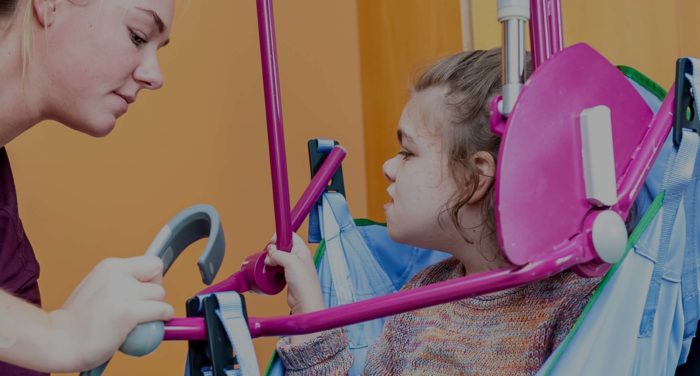
Our guide for Little Champions
Our guide to being a Little Champion is full of ideas and advice to ensure your Little Champion reaches their full potential.
Make sure to visit our Little Champions guide for more information on the support available to children with disabilities, including cerebral palsy. The guide features hints on where to find local government support, ideas for days out and holidays, suggestions for technology that may assist your child with daily tasks, and much more!

Funding your child’s support
Your child’s daily needs will vary depending on the nature of their cerebral palsy. As specialist birth injury solicitors, we can help you to secure the funding and expertise you need for your child’s support.




